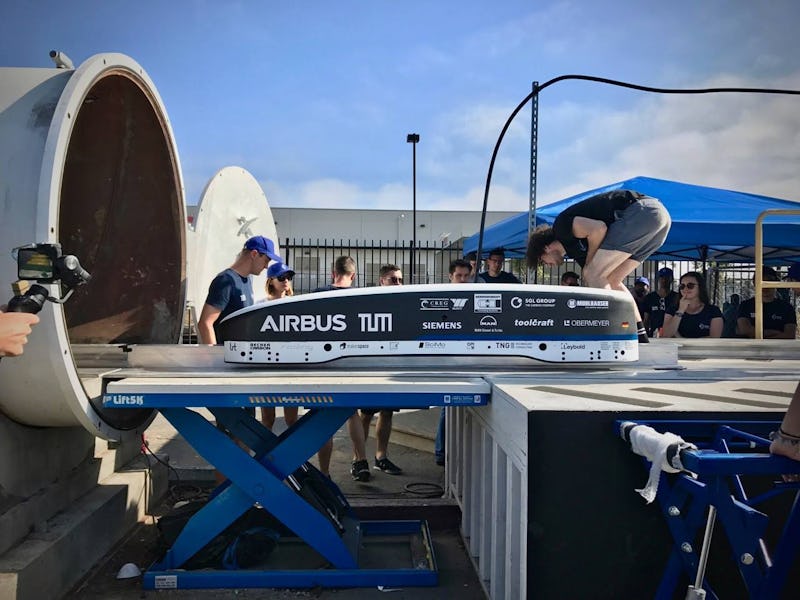WARR Hyperloop Hits 201 MPH Record Speed, Wins SpaceX Competition

Elon Musk’s hyperloop took one step closer to reality on Sunday. Hyperloop Pod Competition II, a three-day event that took place at SpaceX’s 0.8-mile test track in Hawthorne, California, saw three finalists battle it out to dominate the future of vacuum-sealed transport. The competing teams were Swissloop from Switzerland, WARR Hyperloop from Germany, and Paradigm from the United States and Canada. Entrants pushing their pod through the tube were judged on one thing: speed, and speed alone.
Eventually, a hyperloop pod could travel at speeds topping 700 mph, Musk predicted in a 2013 whitepaper called “Hyperloop Alpha.”
See below: Students Tested Their Hyperloop Pods for Elon Musk
In the end, WARR stormed ahead to claim the top prize, with a staggering top speed of 201 miles per hour, the current official speed record, or about 29 percent of the way to Musk’s predicted speed for a fully functional hyperloop. The team’s 176-pound pod is built of carbon fiber and uses a 50-kilowatt electric motor to achieve a maximum speed of nearly 224 miles per hour, meaning its SpaceX run was not far from its full capabilities. Internally, the pod uses an array of 36 sensors to make sure everything runs smoothly while high-precision bearings and aluminum wheels keep the pod on the rail.
It’s an impressive feat, but soon afterward Musk took to Twitter and claimed that it may be possible to reach supersonic speeds in the test track of around 800 miles per hour. For the passengers inside, this could result in a “tiny” sonic boom. If a team reached those speeds, it would even break the theoretical top speed of 700 miles per hour suggested in Musk’s original 2013 hyperloop proposal.
Musk did warn, however, that such speeds would require both high acceleration and deceleration in a tube of short length. This would be less of an issue in a longer tube as it would allow for a more gradual change of speed — in Musk’s words, “no spilt drinks.”
Watch WARR’s winning entry in action here:
This is the second time that WARR, comprised of students from the Technical University of Munich, has claimed the title of fastest pod in a SpaceX-hosted hyperloop competition. The first event, which took place in January, saw the team compete in the final against the Delt team from the Netherlands and MIT Hyperloop from the United States. That event was a far more complex affair, with teams judged on a wide variety of criteria. Although WARR’s pod was the fastest, clocking in at 58 miles per hour, Delft claimed the overall top prize.
The competing teams during Sunday’s event were primarily comprised of college engineering students. There are private efforts as well. Leading the charge is Hyperloop One, a Los Angeles-based startup with a test track north of Las Vegas. The Hyperloop One pod hit 192 miles per hour earlier this month, the company announced.
Musk also gave insight into the super-secret technology behind how the pod slows down:
If it ain’t broke, don’t fix it.